Contact Details
The DA110 Perform drill from Walter can be used universally and cost-effectively for a wide range of materials. It delivers maximum accuracy thanks to its precision-ground surfaces and a tip geometry that has been engineered for optimum centering accuracy, while keeping production costs as a primary consideration.
This HSS drill has a 118° point angle for secure centering, dimensions according to DIN 338 (jobber length), is offered in grade WZ90AJ, which includes an industry-proven TiN coating on the point, and is suitable for use on ISO material groups P, M, K, N, S, and O. The drill is available in diameters of 1-16mm with increments every 0.1 mm.
The Perform lineup of products is one of three categories to Walter tools. Perform tools are products that provide an economical solution with focused importance on price. Others in the Walter lineup include Advance, which indicates product efficiently balanced between price and performance, and Supreme, indicating the highest level of technology and performance available.
The Walter Perform line, which includes tools for milling, threading, and hole making that are designed to be exceptional performers at a lower initial cost is the new standard for small and medium batch production.
Related Glossary Terms
- centering
centering
1. Process of locating the center of a workpiece to be mounted on centers. 2. Process of mounting the workpiece concentric to the machine spindle. See centers.
- gang cutting ( milling)
gang cutting ( milling)
Machining with several cutters mounted on a single arbor, generally for simultaneous cutting.
- high-speed steels ( HSS)
high-speed steels ( HSS)
Available in two major types: tungsten high-speed steels (designated by letter T having tungsten as the principal alloying element) and molybdenum high-speed steels (designated by letter M having molybdenum as the principal alloying element). The type T high-speed steels containing cobalt have higher wear resistance and greater red (hot) hardness, withstanding cutting temperature up to 1,100º F (590º C). The type T steels are used to fabricate metalcutting tools (milling cutters, drills, reamers and taps), woodworking tools, various types of punches and dies, ball and roller bearings. The type M steels are used for cutting tools and various types of dies.
- milling
milling
Machining operation in which metal or other material is removed by applying power to a rotating cutter. In vertical milling, the cutting tool is mounted vertically on the spindle. In horizontal milling, the cutting tool is mounted horizontally, either directly on the spindle or on an arbor. Horizontal milling is further broken down into conventional milling, where the cutter rotates opposite the direction of feed, or “up” into the workpiece; and climb milling, where the cutter rotates in the direction of feed, or “down” into the workpiece. Milling operations include plane or surface milling, endmilling, facemilling, angle milling, form milling and profiling.
- point angle
point angle
Included angle at the point of a twist drill or similar tool; for general-purpose tools, the point angle is typically 118°.
- threading
threading
Process of both external (e.g., thread milling) and internal (e.g., tapping, thread milling) cutting, turning and rolling of threads into particular material. Standardized specifications are available to determine the desired results of the threading process. Numerous thread-series designations are written for specific applications. Threading often is performed on a lathe. Specifications such as thread height are critical in determining the strength of the threads. The material used is taken into consideration in determining the expected results of any particular application for that threaded piece. In external threading, a calculated depth is required as well as a particular angle to the cut. To perform internal threading, the exact diameter to bore the hole is critical before threading. The threads are distinguished from one another by the amount of tolerance and/or allowance that is specified. See turning.
- titanium nitride ( TiN)
titanium nitride ( TiN)
Added to titanium-carbide tooling to permit machining of hard metals at high speeds. Also used as a tool coating. See coated tools.

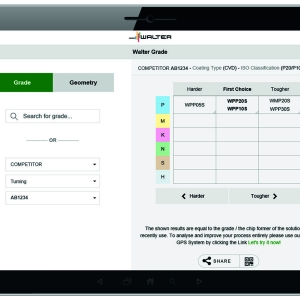
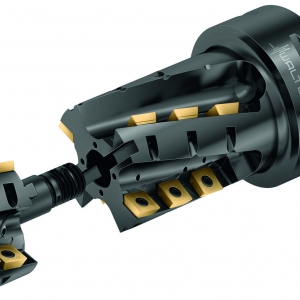
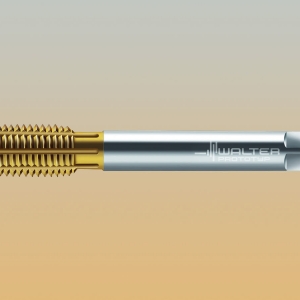
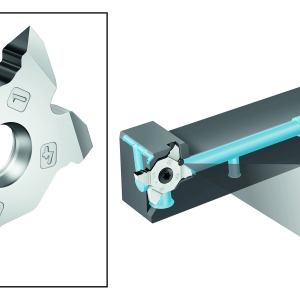
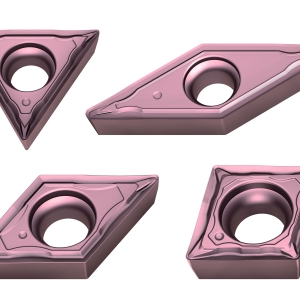
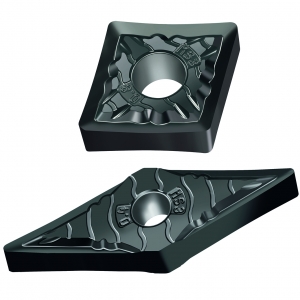
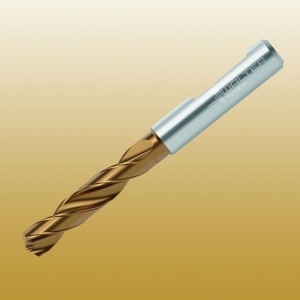
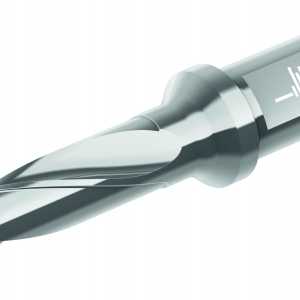
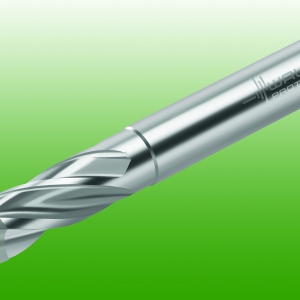
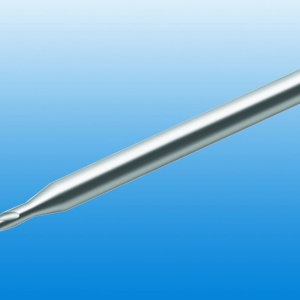
 PRODUCTS
PRODUCTS

